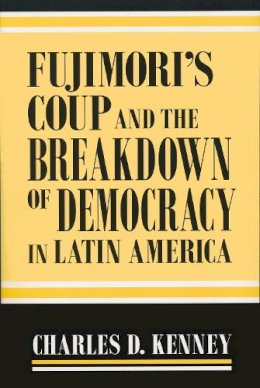
Fujimori's Coup and the Breakdown of Democracy in Latin America (ND Kellogg Inst Int'l Studies)
Charles D. Kenney
Much as Augusto Pinochet’s 1973 coup in Chile stood as a symbol of the challenges of an earlier period, Alberto Fujimori’s 1992 presidential coup became a symbol of the present challenges of democratization in Latin America and the world. In this authoritative book, Charles D. Kenney explores why and how democracy broke down in Peru in 1992. His analysis of Peruvian politics sheds light on the problems of democratic stability in new democracies and points to strategies for preventing future failures in other countries.
Kenney’s central argument is that institutional factors—especially the absence of a legislative majority—played a crucial role in the collapse of democracy in Peru in 1992 and throughout Latin America over the last forty years. This argument, which is theoretically and politically controversial in the case of Peru, is examined alongside alternative explanations of Fujimori’s coup. Kenney tests the Peruvian case study in a cross-national assessment of democratic breakdowns in Latin America since 1960.
Containing a unique compilation of original quantitative data, Fujimori’s Coup and the Breakdown of Democracy in Latin America is the only book-length study to treat this subject. Kenney’s findings will be important for political scientists, scholars of Latin America, and policy makers.
Product Details
About Charles D. Kenney
Reviews for Fujimori's Coup and the Breakdown of Democracy in Latin America (ND Kellogg Inst Int'l Studies)
